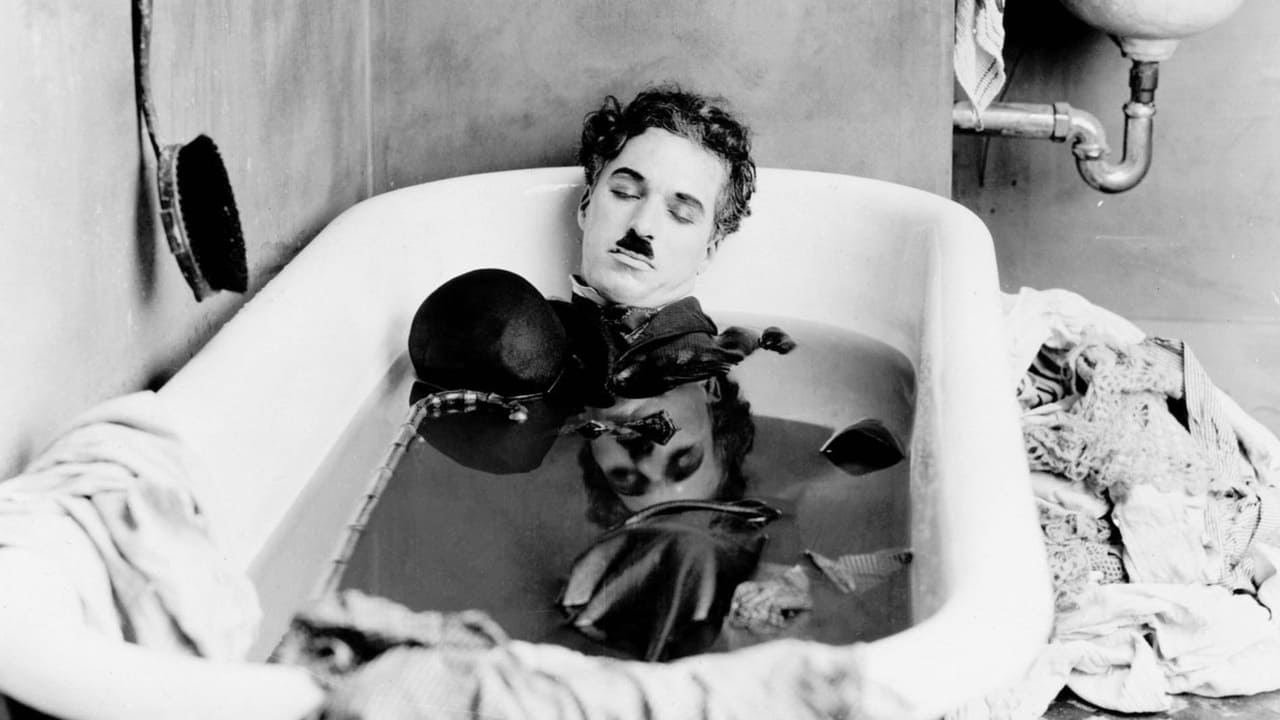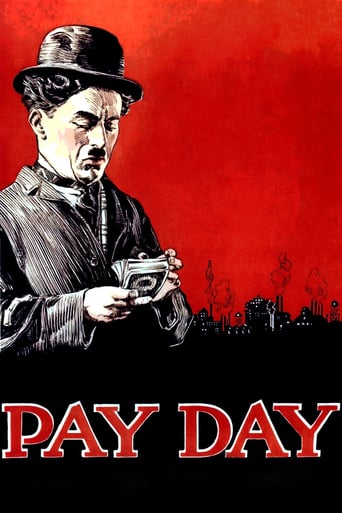

Charlie is doing thankless work for unappreciative people. His wife is on his case ever minute. He tries to get better pay. His work experiences are sad and defeating. The men he works with are in the same boat. The strength of this early feature is the ingenuity of Chaplin as he navigates every moment, trying to do what is right. He is tired at the end of the day, but his virago of a wife is relentless. I look forward to other Chaplin short features, having not been exposed to them before.
... View MoreSo many now-classic (and later oft-duplicated) comedy scenes and scenarios that still hold up so well nearly 90 years later!! Some reviewers have said the plot in this one wasn't so much, but *I* think plot wasn't the focus - I think it was mostly just all-out for laughs and I got plenty of them!My review title, "Just For Fun", sums up how and why Chaplin made this film as he did, in my opinion. He could totally do whatever the heck he wanted as long as he had a film to fulfill his obligation to First National. His movies had already become "HIS" movies in every sense of the word, far from any days when he had to worry about one bad performance costing him basic room & board. Plus by this time, I'm sure he was more than confident that he knew how to please his comedy fans so he just let the gags run full throttle on "enjoy"! Finally, there was one little bit of comedy I hadn't seen anyone else mention thus far. When the boys are all standing outside the speakeasy, at one point Charlie's "standing" (lol) with the help of his cane, unaware that his back is to a ground-level metal grate. But like the elevator, his timing (and luck!) was with him as he managed to twirl the cane several times to have its point land ON the grate! UN-like the elevator, though, his luck runs out and the cane lands in one of the grate holes and takes him down with it! All in all, a grate -- er, I mean, a GREAT work and a fitting end to Chaplin's short film repertoire. ;-)
... View MoreChaplin edited, wrote, produced, and directed this film for First National Pictures, his last short film before focusing exclusively on feature films. In it, Chaplin plays an industrious worker with an amazing ability to lay bricks at lightning speed. There are numerous sight gags, especially at lunch time when the workers take their break involving an elevator and discarded food items. Chaplin feels he's been cheated out of some pay, but the boss let's him in so many words that it's a closed issue. Edna Purviance is the boss' daughter, but she has nothing to really contribute in this film. Chaplin tries hiding his pay from his Philistine wife played by the behemoth Phyllis Allen, but she's quick to discover his hiding place. Chaplin ends up smuggling some money back from his wife and heads to a Bachelor's Club and stays out drinking most of the night. He has a heck of a time trying to catch a trolley ride home, and when he does stroll home in the wee hours, he almost fools his wife into thinking he was never out all night until the alarm clock goes off at just the wrong moment. Of course, with a wife like his, sleeping with a rolling pin in hand, can we blame him for drinking? This was supposedly Chaplin's favorite short film, and it's understandable in that it contains some common themes that find themselves in many of his films. It's a tale of a workingman, everyman with a nagging wife, trying to just make it day to day in a world that seems stacked against him. However, the film is not really as funny or as good as many of his other films from this period. **1/2 of 4 stars.
... View MoreThis film has some highly imaginative and well-timed stunts--all revolving around Charlie's job at a construction site. All the near-falls and accidents remind me of Sweet Pea from POPEYE cartoons--as the baby is nearly killed again and again but miraculously escapes. In Chaplin's case, it involved a funny sequence when he ALMOST falls down an elevator many times, dropping objects accidentally on those below and a really interesting sight gag involving guys throwing bricks up to Charlie who catches this with complete ease (it was done by running the film backwards). Later, Charlie's hideous and scary wife is introduced and it goes from a work comedy to a domestic one. In a way, this was a minor disappointment, as I preferred the faster paced work stunts, but all-in-all this is a funny and well executed short.
... View More